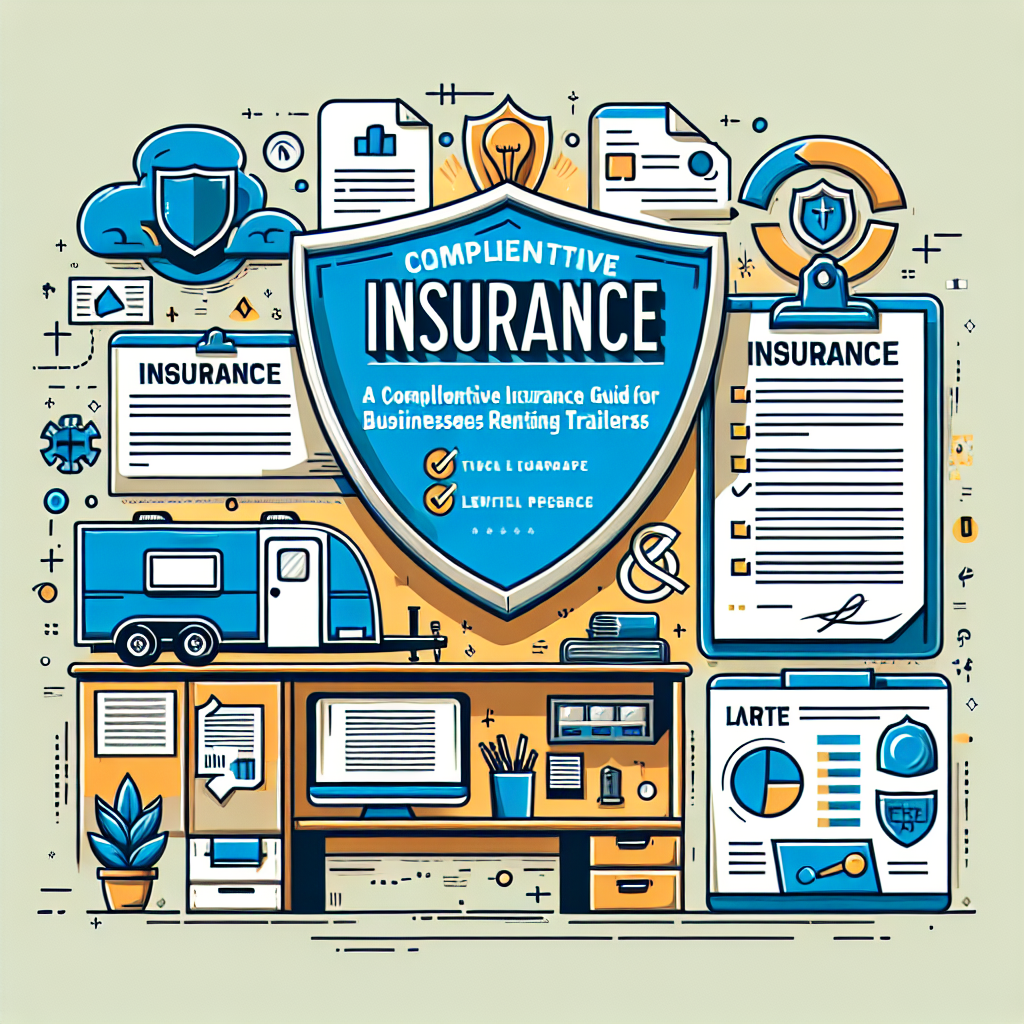Filed under Business Insurance on
Essential Insurance Guide for Trailer Rental Businesses

Running a trailer rental business can be a lucrative endeavor, but it's not without its challenges. One of the most crucial aspects to manage is insurance. After all, when you're renting out expensive equipment, the last thing you want is to face unexpected liabilities. Here's a comprehensive guide to the essential insurance needs of trailer rental businesses.
Understanding the Unique Risks of Trailer Rental Businesses
Operating a trailer rental business involves unique risks that standard insurance policies might not cover. Whether dealing with theft, accidents, or unforeseen damages, understanding these risks is critical. A robust insurance strategy not only protects your assets but also ensures the longevity and credibility of your business. Therefore, it’s imperative to have a tailored insurance plan that addresses these specific challenges.
The Importance of Liability Coverage
Liability insurance is a cornerstone for any trailer rental business. This coverage protects you if a renter or third party is injured while using your equipment. For instance, if a trailer detaches and causes an accident, liability insurance covers legal fees and compensates affected parties. By prioritizing liability coverage, you shield your business from financial devastation.
- General Liability: Covers bodily injuries and property damage.
- Professional Liability: Offers protection against lawsuits related to professional services.
Physical Damage Coverage: Protecting Your Assets
Physical damage insurance is another fundamental protection for your trailer rental business. This type of coverage includes:
- Collision Coverage: Pays for damages to the trailer caused by a collision, irrespective of who is at fault.
- Comprehensive Coverage: Covers non-collision-related perils such as theft, vandalism, or natural disasters.
These coverages are essential for safeguarding your trailers against unforeseen damages, ensuring your business can recover quickly from setbacks.
The Role of Commercial Auto Insurance
While most people associate auto insurance with vehicles, commercial auto insurance is also crucial for trailer rental operations. This policy covers trailers when they're attached to towing vehicles. It protects against damage or loss during transit, especially vital for businesses offering delivery or pickup services.
Selecting the Right Insurance Provider
Choosing the right provider is pivotal in crafting an effective insurance plan. Here are some factors to consider:
- Reputation and Reliability: Opt for insurers with strong financial stability and positive reviews.
- Customization Options: Ensure the provider offers coverage that can be tailored to your business's specific needs.
- Claims Process: A seamless and efficient claims process is crucial for minimizing downtime and loss.
- Cost: Balance the policy cost with the coverage provided, aiming for comprehensive protection without excessive expenses.
Research and comparisons among insurance providers are essential to ensure you’re receiving not just competitive rates but also adequate coverage for your trailer rental business.
Understanding Insurance Terms and Conditions
Before signing on the dotted line, thoroughly understand the insurance policy's terms and conditions. This includes knowing the exclusions, deductibles, and policy limits. By understanding these factors, you can avoid unpleasant surprises during a claim.
Exclusions and Limitations
Every policy has exclusions and limitations. Common exclusions can include damage caused during illegal activities or use beyond specified geographic limits. Be sure to discuss these with your insurer to ensure a comprehensive understanding.
Deductibles and Premiums
Finding the right balance between deductibles and premiums is essential. Higher deductibles can lower your premium, but it's critical to ensure that you can afford these costs if a claim arises.
Emerging Trends in Trailer Rental Insurance
As the industry evolves, so do insurance products. Staying informed about emerging trends can help you refine your insurance strategy. Here are some trends currently shaping the landscape:
Consulting with Experts
Lastly, consult with insurance experts who specialize in the trailer rental industry. Their insights can prove invaluable, providing tailored advice to ensure your business is adequately protected. These professionals can help you navigate complex policy languages and negotiate favorable terms.
Collaborating with Brokers
Brokers can provide a wide range of options from multiple insurers, saving you time and ensuring you get the best coverage. Their expertise in identifying suitable policies that fit your unique requirements is invaluable.
However, always remember to conduct your own due diligence. Understand the advantages and potential drawbacks of recommendations to make informed decisions.
Conclusion
In the dynamic world of trailer rentals, securing the right insurance is not just a good practice—it’s vital for sustainability and peace of mind. By investing in comprehensive liability coverage, physical damage insurance, and staying abreast of industry trends, your trailer rental business can thrive while staying protected against unforeseen risks. Equip yourself with knowledge, seek expert advice, and choose your insurance provider wisely to ensure your business's future success.
Embark on your trailer rental journey with confidence, knowing that your insurance strategy is robust and ready to face the industry's challenges head-on.





